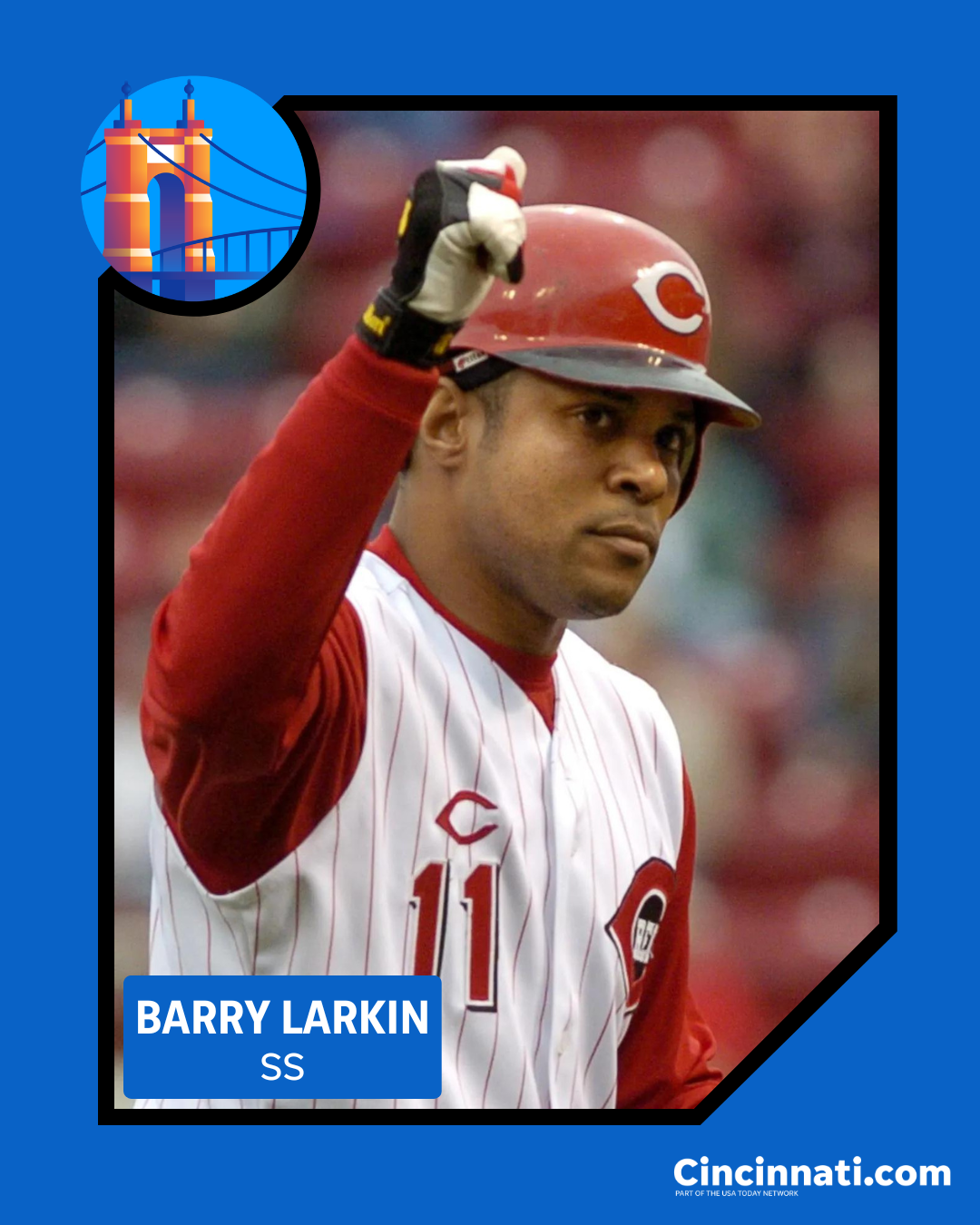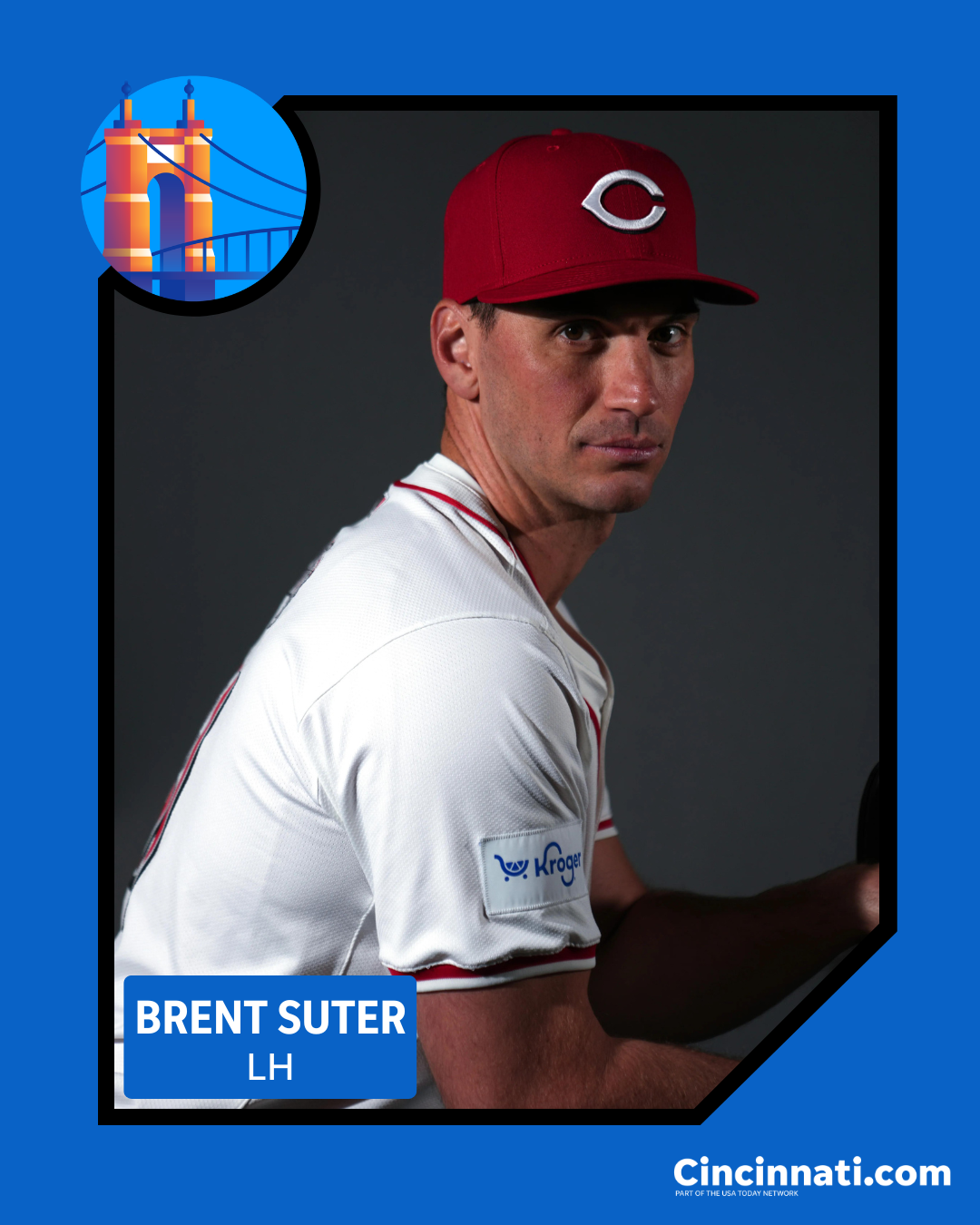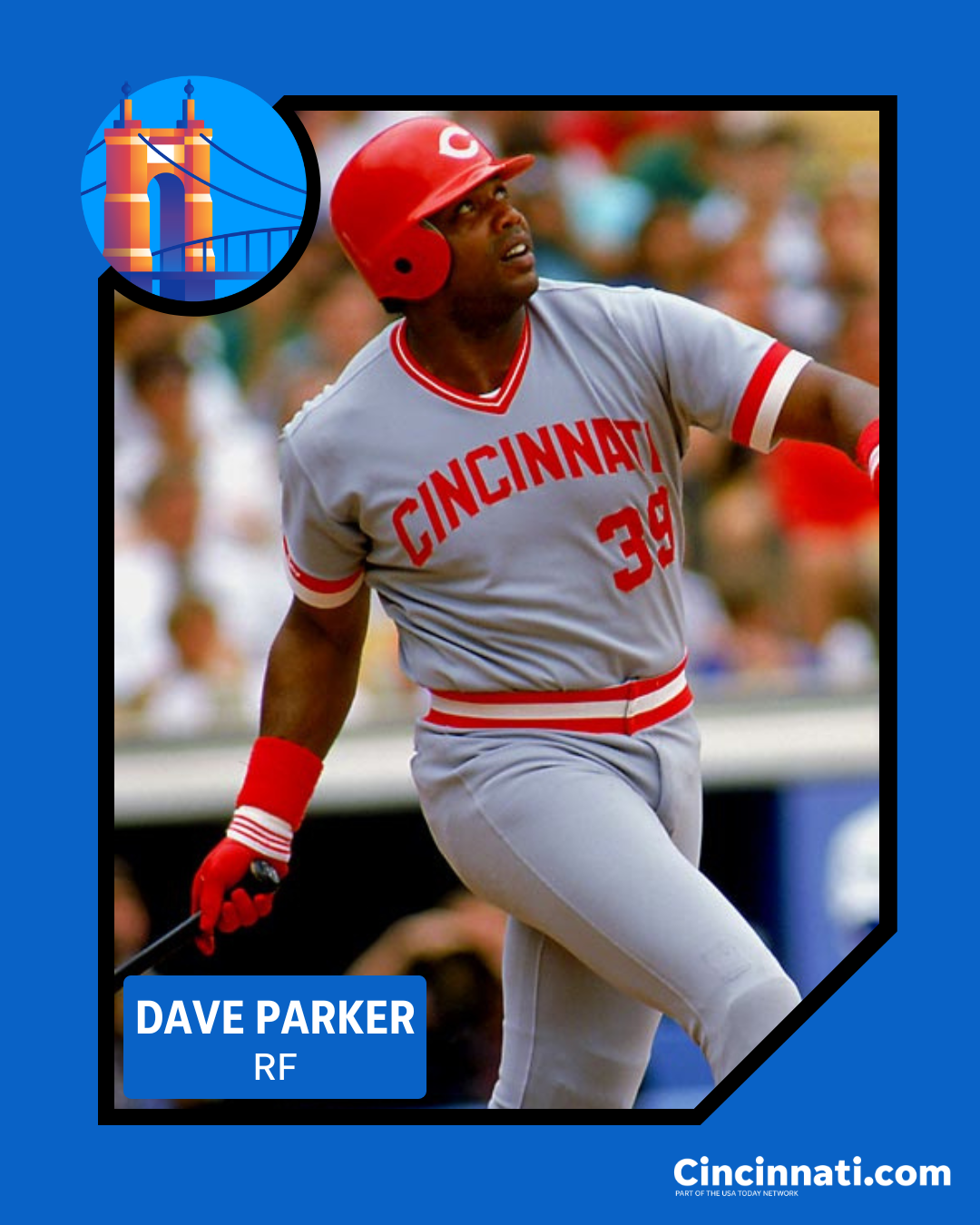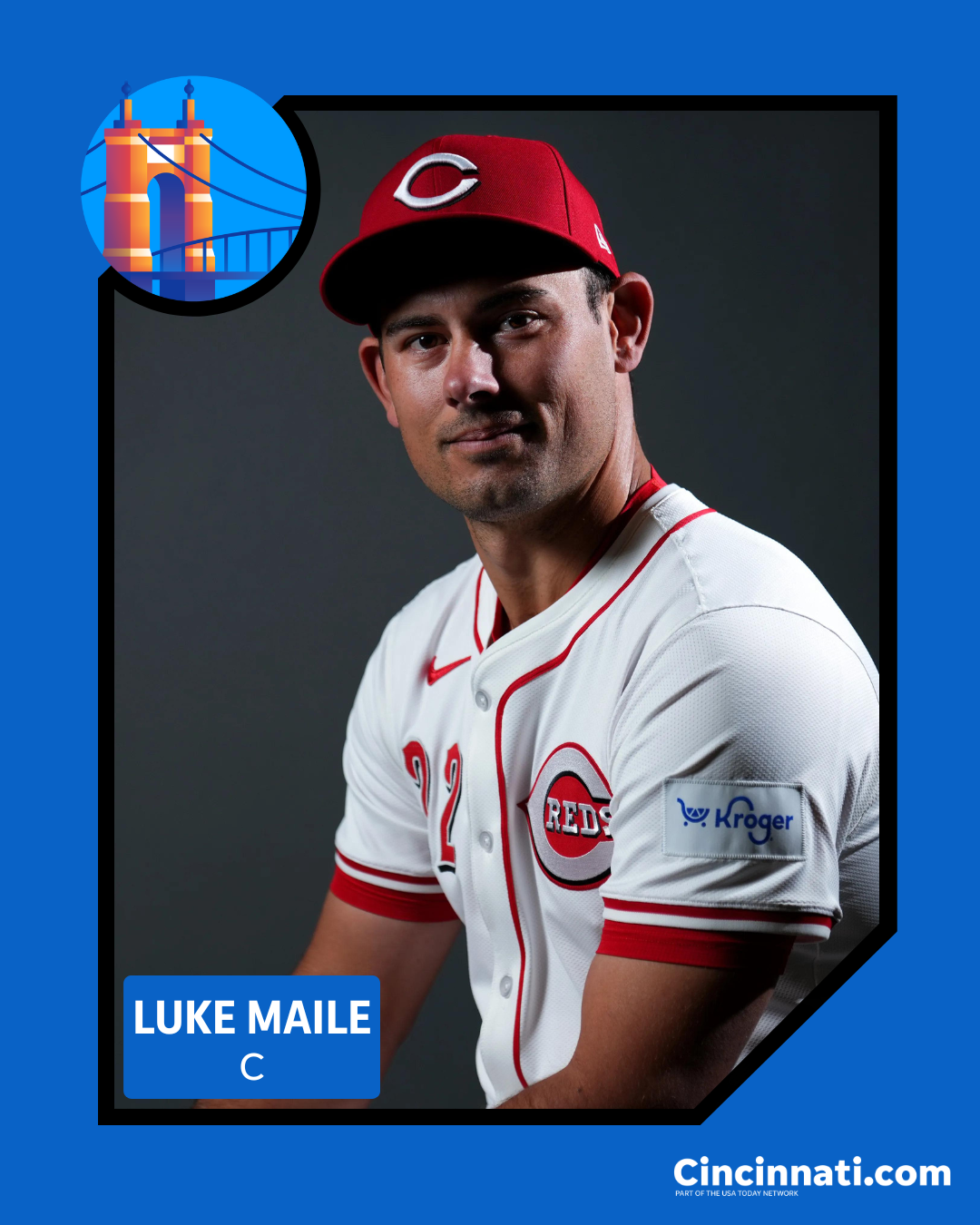'Badge of honor': How Cincinnati area produces so many big-league players for its size
GOODYEAR, Arizona — Maybe it has something to do with a professional baseball history that reaches further in the past than any other city in America.
Maybe it’s something in the water of the Ohio River.
Barry Larkin thinks it’s something else.
“I think it was the Big Red Machine,” the legendary Cincinnati Reds shortstop said.
Larkin, whose Hall of Fame path started at Archbishop Moeller High, was an 11-year-old kid playing sports in Cincinnati when the Reds won the first of their back-to-back championships in 1975 and ’76.
“I was out playing like Pete Rose,” he said. “I’m Pete Rose, or I’m Davey Concepcion today. I’m either bouncing the ball across the diamond or I’m getting grass stains on the top of my knees.”
That might be as good an explanation as any for just how strong the grass roots baseball tradition has sustained in Cincinnati into more recent generations when youth baseball interest has waned nationally — why the Cincinnati area has produced so damn many good and great major league ballplayers for its modest size.

Reds All-Cincinnati team Here is the best 40-man roster of all time for Cincinnati big-league players
Reds All-Cincinnati team How we assembled the list of Cincinnati's greatest big-league players
Big league ballplayers of a certain generation from Cincinnati routinely cited the hard-charging play of Rose as their inspiration — including La Salle High’s Tim Naehring, whose own underrated career as a Red Sox infielder might have been shortened by emulating that style to the point of injury risk.
The Big Red Machine left its mark
And Rose was just one of a list of hallowed names from that iconic team, including Johnny Bench, Joe Morgan, Tony Perez, Concepcion, George Foster and the original Ken Griffey.
Reds All-Cincinnati team These are the statistical leaders in Cincinnati baseball history
“I remember my mom one time telling me she went to the bank,” Larkin said, then dropped his voice to a whisper, “and she saw George Foster.”
Larkin laughed.
“I saw George Foster,” he said in a whisper again, imitating his mom’s reverence.
“It was a big deal.”
That’s the thing. Few teams in baseball history hold that kind of power of imagination and awe for their greatness.
The ’27 Yankees. The Big Red Machine.
Maybe the ’55 Dodgers. But even that team was more of a cultural phenomenon made popular as much for the 512-page The Boys of Summer love letter penned by Roger Kahn as for the magnitude of its historic might.
The Big Red Machine resonates to this day in a way few teams ever have.

Brent Suter, the veteran reliever who went to Moeller and signed this winter with his hometown Reds, was too young to see that team play, but he grew up in town hearing stories from two of the biggest baseball fans he knew: his dad and grandfather.
One story still gets told often.
“My dad loved the Big Red Machine growing up,” Suter said. “His dad was a policeman in Blue Ash. And when my dad came home from school one day, Tony Perez, Johnny Bench and Pete Rose were in his living room. Their car had broken down, and my grandpa had helped them with the car."
Suter figures his dad was maybe 12 at the time.
“You talk about a dream come true.”
As Suter told the story in the Reds clubhouse this spring, teammate Nick Martinez, listening from the next locker over, perked up.
“That’s awesome,” Martinez said.
Whether it was specifically the power of that team that led so many athletes in the area to play baseball even if they leaned toward other sports — like Larkin, who initially went to Michigan on a football scholarship — there’s no debating the power of greater Cincinnati in producing baseball talent.
Amount of talent defies size of Cincinnati
Especially for a city its size.
When we put together our all-time Cincinnati 40-man roster for the Enquirer, it included an outfield, left to right, of Jimmy Wynn, Ken Griffey Jr. and Dave Parker — so good there wasn’t room for David Justice, Lance Johnson or Andrew Benintendi.

“I still don’t know how to compare it to other cities, but I just know that Cincinnati’s a great baseball town and has been for a long time,” said Reds manager David Bell, another Moeller grad who’s on the all-Cincinnati bench as an infielder – backing up, among others, his dad Buddy, the all-Cincinnati starting third baseman.
“That was part of my excitement with this job. And it’s only increased over time,” the manager said of Cincinnati’s baseball culture. “Seeing and feeling being in the city over the last year, year and a half, you can feel how much baseball means to the city, just from being around town, hearing from different people,” Bell added. “I think that’s come out more over the last year.”
The place that holds a parade on Opening Day could fill a mile of floats with the big-league players that grew up along the parade route, a lineage tracing back 150 years – albeit, with what looks like a significant boost over the last 50 from a particular influence.
“Pete Rose is the first name I ever remember hearing about,” said current Reds catcher Luke Maile, who grew up in Covington. “And Larkin was on the team when I was a real little kid. He was in the prime of his career. And when Griffey came over, it was like, ‘Oh, there’s another guy that grew up next to me, basically.
“Those three — Rose, Griffey and Barry — immediately come to mind. But the Bell family, too — a name that resonated all over the Tri-State area. Their whole family just lives, breathes and eats baseball.”

Said Suter: “Griffey was my guy growing up. Ken Griffey Jr. was my favorite player in any sport.”
And Larkin, too, he said. “And David Bell — all the Bells,” Suter added.
Those are just some of the Moeller guys.
Suter then rattles off other names: Rose, Ron Oester, Josh Harrison, Kyle Schwarber, Benintendi.
Harrison was in Reds camp until Monday, when he opted out of his contract after being told he wasn’t going to make the roster. The two-time All-Star is, however, the starting second baseman on the all-Cincinnati team.
Not a bad double-play combination with Larkin.
“It’d be slick for sure,” Harrison said.
Not just major leaguers, highly decorated ones
In fact, the all-Cincinnati starting lineup has a combined 61 All-Star selections, two Hall of Famers and baseball’s all-time hits leader.
Larkin said the strong community support system for baseball throughout the area has been a big part of nurturing the unusually robust pipeline of talent. And local big-leaguers such as Toronto Blue Jays pitcher Erik Swanson point to the strength of the area travel teams.
But other cities of similar size have stars, too.
Seattle has Ron Santo, Earl Averill and Tim Lincecum. Indianapolis has Three Finger Brown, Oscar Charleston and Amos Rusie. Las Vegas, Greg Maddux, Bryce Harper and Kris Bryant.
Pittsburgh has Honus Wagner, Josh Gibson and Pud Galvin; St. Paul, Minnesota, Dave Winfield, Paul Molitor and Joe Mauer.
And Cincinnati? How does it rank among the others?
“No. 1,” Harrison said. “We got Griffey, and we got Larkin. And Pete Rose. Enough said.”
The civic baseball pride might be as strong as the talent from the area.
“It’s a huge history. It’s so unique,” Maile said. “It’s such a small city. But I think you’d be hard-pressed to find three bigger names than Griffey and Barry and Rose.
“It’s a badge of honor for the city,” Maile added. “I think that’s why fans from Cincinnati are so passionate about baseball, because there is a bit of an underdog (identity), like, ‘Look what we can still produce.’
“What we’re talking about right now, it’s not surprising that guys like myself and Suter and Josh would want to come back and be a part of that. Nobody else, no matter where you’re from — if you’re not from Cincinnati, I’m not sure it would feel the same way.”
This article originally appeared on Cincinnati Enquirer: Is Cincinnati the top producer of U.S. baseball talent, pound for pound?
